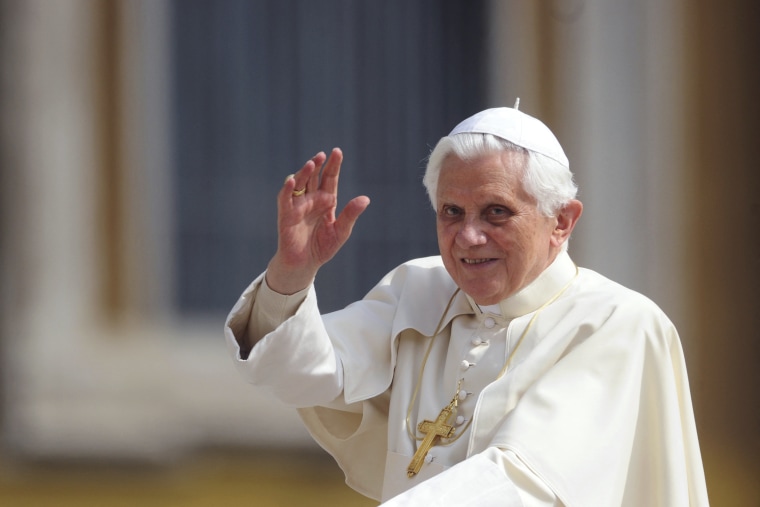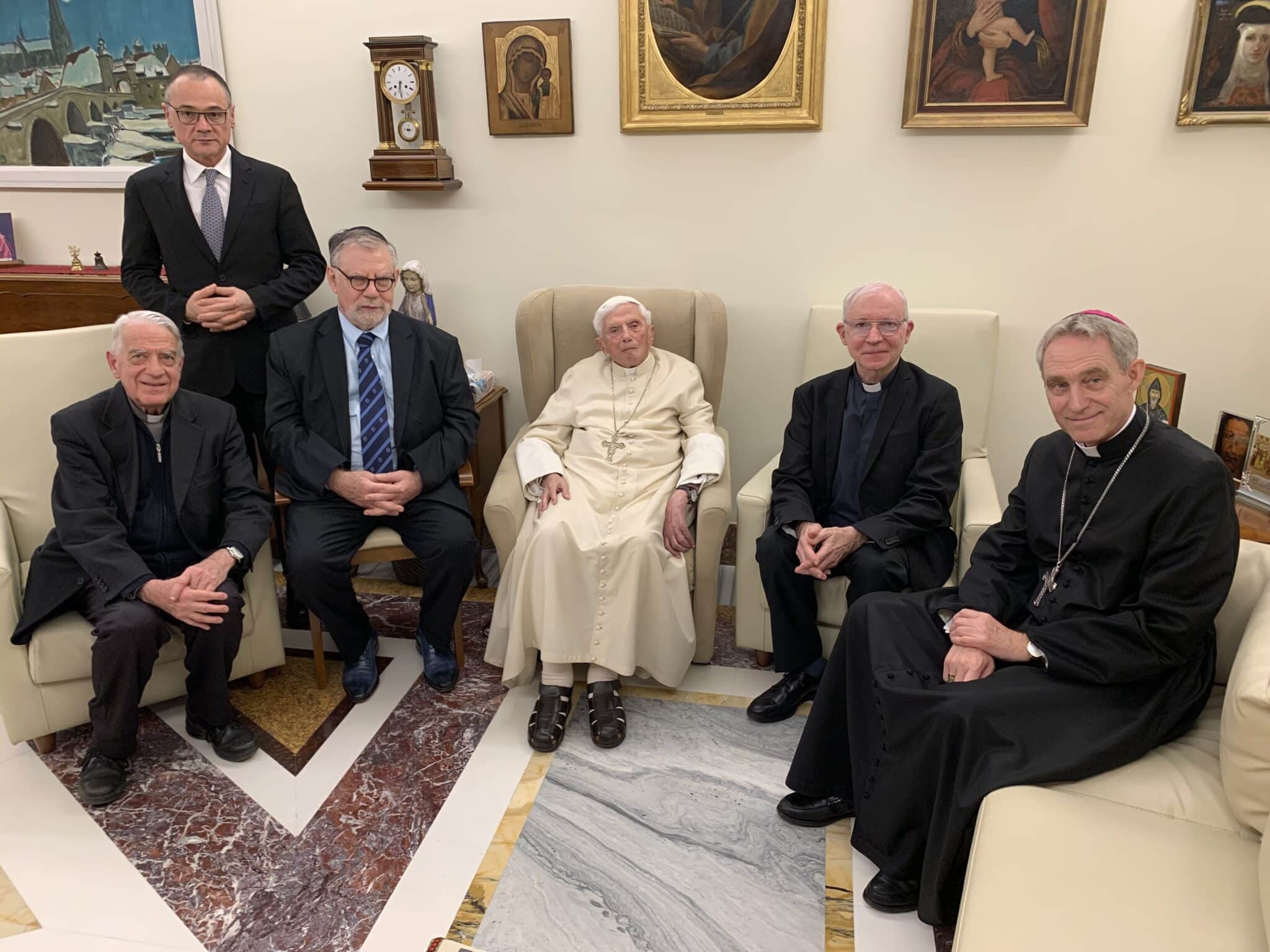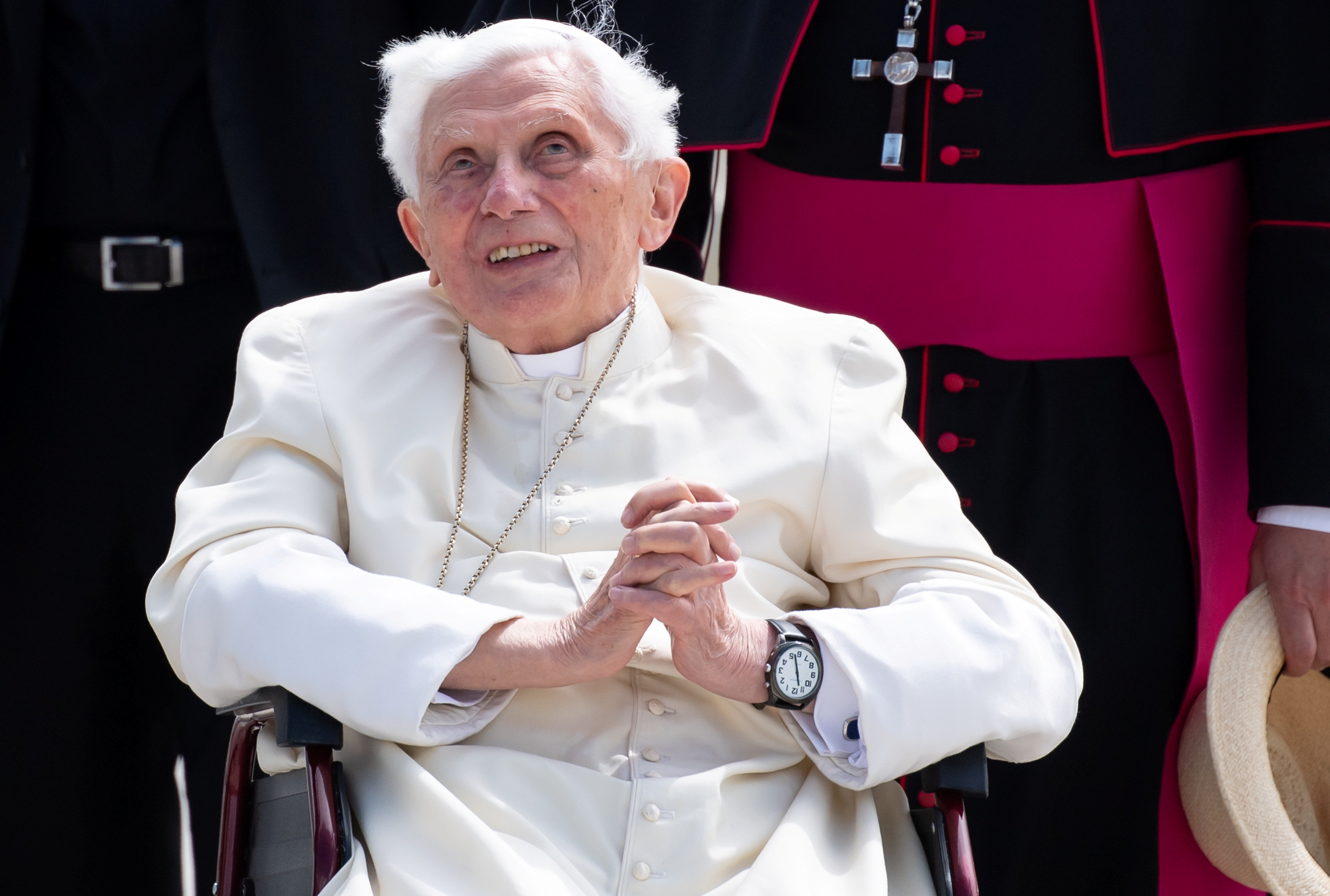Pope Benedict And Pope Francis: A Tale Of Two Papacies
When you hear the names Pope Benedict and Pope Francis, it’s like diving into two distinct chapters of the Catholic Church’s rich history. These two figures represent different leadership styles, approaches to modern challenges, and visions for the future of the Church. Whether you're a devout Catholic or just someone curious about the impact of religious leaders on global issues, their stories are nothing short of fascinating. And guess what? Their influence extends far beyond the Vatican’s walls, touching politics, culture, and even environmental debates.
Let’s take a moment to reflect on why these two popes matter. Pope Benedict XVI was known for his deep theological roots, emphasizing tradition and doctrine. On the other hand, Pope Francis has emerged as a symbol of inclusivity and reform, advocating for social justice and climate action. It’s not just about their titles; it’s about how they’ve shaped the world we live in today. So, buckle up because we’re about to explore the legacy of these two remarkable men.
Now, before we dive deeper, let me ask you a question: Have you ever wondered how two popes from different backgrounds could influence millions of lives across the globe? Their actions, speeches, and decisions have ripple effects that touch every corner of the planet. From poverty alleviation to interfaith dialogue, Pope Benedict and Pope Francis have left an indelible mark on history. Stick around, and we’ll uncover the details together.
Read also:Joshua Ledet Wife Discovering The Love Story Behind The Music Icon
Who is Pope Benedict XVI?
Pope Benedict XVI, born Joseph Aloisius Ratzinger, served as the 265th pope of the Roman Catholic Church from 2005 to 2013. His papacy was marked by a strong emphasis on preserving Catholic tradition and doctrine. Known for his intellectual rigor and deep theological insights, Benedict XVI was a scholar before becoming pope. His resignation in 2013 was historic, as he became the first pope to step down voluntarily in nearly 600 years.
During his tenure, Benedict XVI focused on strengthening the Church’s core teachings and addressing issues like secularism and relativism. He was also instrumental in promoting interfaith dialogue, particularly with the Jewish community. But his papacy wasn’t without controversy, as he faced criticism for his handling of the clergy sex abuse scandal. Despite this, his contributions to theology and his commitment to tradition remain significant.
The Early Life of Joseph Ratzinger
Joseph Ratzinger was born on April 16, 1927, in Marktl, Germany. He grew up in a devout Catholic family and was ordained as a priest in 1951. Ratzinger’s early years were shaped by the turmoil of World War II, during which he was briefly conscripted into the German military but later deserted. His academic career flourished, and he became a prominent theologian, teaching at several universities before being appointed Archbishop of Munich and Freising in 1977. Later, he was elevated to the College of Cardinals by Pope Paul VI.
Before becoming pope, Ratzinger served as the Prefect of the Congregation for the Doctrine of the Faith, where he earned a reputation for defending Church doctrine. His writings and teachings continue to influence Catholic thought, even after his retirement.
Who is Pope Francis?
Pope Francis, born Jorge Mario Bergoglio, became the 266th pope of the Catholic Church in 2013. His election marked a historic moment, as he was the first pope from the Americas and the first Jesuit to hold the office. Francis has been praised for his humble demeanor, focus on social justice, and commitment to addressing global issues like poverty and climate change.
Under his leadership, the Church has embraced a more inclusive approach, emphasizing mercy and compassion over rigid adherence to doctrine. Pope Francis has also been a vocal advocate for interfaith dialogue and reconciliation, making headlines with his progressive stance on various social issues. His encyclical "Laudato Si'" is a landmark document that addresses environmental concerns and calls for global cooperation to combat climate change.
Read also:Frank Bonin Funeral Home Obituaries A Heartfelt Journey Through Life And Legacy
A Glimpse into Jorge Mario Bergoglio’s Background
Jorge Mario Bergoglio was born on December 17, 1936, in Buenos Aires, Argentina. He worked as a chemical technician before entering the seminary and was ordained as a priest in 1969. Bergoglio rose through the ranks of the Church, eventually becoming the Archbishop of Buenos Aires in 1998 and a cardinal in 2001.
Known for his simple lifestyle and dedication to serving the poor, Bergoglio’s election as pope was seen as a sign of the Church’s desire for renewal and reform. His emphasis on humility and service has resonated with millions of Catholics and non-Catholics alike. Even today, Pope Francis continues to inspire people around the world with his message of hope and compassion.
Key Differences Between Pope Benedict and Pope Francis
While both popes share a deep commitment to the Catholic faith, their approaches to leadership differ significantly. Pope Benedict was more focused on preserving tradition and reinforcing Church doctrine, whereas Pope Francis emphasizes inclusivity and reform. Let’s break down some of the key differences:
- Doctrine vs. Dialogue: Pope Benedict prioritized doctrinal purity, while Pope Francis encourages open dialogue and a more flexible interpretation of Church teachings.
- Traditional vs. Modern: Benedict’s papacy was rooted in tradition, while Francis has embraced modern challenges like climate change and social inequality.
- Authority vs. Accessibility: Benedict was seen as more formal and authoritative, whereas Francis is known for his accessibility and down-to-earth personality.
These differences reflect broader shifts within the Catholic Church and its evolving role in the modern world.
How Their Papacies Have Shaped the Church
Both Pope Benedict and Pope Francis have left lasting impacts on the Catholic Church. Benedict’s focus on tradition helped stabilize the Church during a time of rapid change, while Francis’s emphasis on reform has opened new doors for dialogue and progress. Together, their contributions highlight the Church’s ability to adapt while remaining true to its core values.
Addressing Global Challenges
One of the most significant ways Pope Benedict and Pope Francis have influenced the world is through their engagement with global challenges. From poverty and inequality to environmental issues, these popes have used their platforms to advocate for positive change. Pope Francis, in particular, has been a vocal proponent of climate action, calling on world leaders to take bold steps to protect the planet.
Pope Benedict, meanwhile, focused on issues like secularism and the decline of religious values in modern society. His encyclicals, such as "Spe Salvi" and "Caritas in Veritate," addressed topics like hope, charity, and the relationship between faith and reason. Both popes have contributed to shaping the global conversation on important issues, demonstrating the Church’s relevance in today’s world.
Climate Change and Social Justice
Pope Francis’s encyclical "Laudato Si'" is a testament to his commitment to addressing climate change and promoting social justice. The document calls for a global response to environmental degradation and highlights the interconnectedness of all creation. It has been praised by scientists, activists, and leaders from various faiths for its comprehensive approach to tackling one of the most pressing issues of our time.
Interfaith Dialogue and Reconciliation
Both Pope Benedict and Pope Francis have made significant strides in promoting interfaith dialogue and reconciliation. Pope Benedict worked to strengthen ties with the Jewish community and other religious groups, while Pope Francis has extended a hand of friendship to Muslims, Buddhists, and other faiths. Their efforts have fostered greater understanding and cooperation between different religious traditions.
For example, Pope Francis’s visit to the United Arab Emirates in 2019 marked a historic moment in Christian-Muslim relations. During the trip, he signed a document on human fraternity with the Grand Imam of Al-Azhar, underscoring the importance of peace and mutual respect.
Building Bridges Across Faiths
The work of Pope Benedict and Pope Francis in interfaith dialogue goes beyond mere words. They have actively sought to build bridges between different religious communities, recognizing the shared values that unite humanity. This commitment to dialogue and understanding is crucial in a world often divided by differences.
Challenges Faced by the Church
No discussion of Pope Benedict and Pope Francis would be complete without addressing the challenges faced by the Catholic Church during their tenures. The clergy sex abuse scandal has been one of the most significant issues, with both popes taking steps to address it. Pope Benedict established new procedures for handling abuse cases, while Pope Francis has been more vocal in condemning the abuse and advocating for justice for victims.
Other challenges include declining Church attendance in some regions, the rise of secularism, and internal divisions within the Church. Both popes have worked to address these issues, often navigating complex political and social landscapes.
Steps Toward Healing and Renewal
Efforts to heal the wounds caused by these challenges have been ongoing. Pope Francis, in particular, has emphasized the need for transparency and accountability, calling for a culture of listening and compassion within the Church. His approach has been praised by many as a step in the right direction, though challenges remain.
The Future of the Catholic Church
As we look to the future, the legacies of Pope Benedict and Pope Francis will undoubtedly shape the direction of the Catholic Church. Their contributions to theology, interfaith dialogue, and global issues have laid the groundwork for continued progress. However, the Church must continue to adapt to the changing needs of its followers and the world at large.
Whether through reform, dialogue, or a renewed focus on tradition, the Catholic Church will need to navigate the complexities of the modern era with grace and wisdom. The examples set by Pope Benedict and Pope Francis serve as guiding lights for future leaders of the Church.
A Call to Action
So, what can we take away from the stories of Pope Benedict and Pope Francis? Their lives and leadership offer valuable lessons in faith, compassion, and resilience. As individuals, we can draw inspiration from their commitment to justice, peace, and the common good. Whether through acts of service, advocacy, or simply living out our values, we all have a role to play in building a better world.
I invite you to reflect on how these two remarkable men have impacted your life and the lives of others. Share your thoughts in the comments below or explore more articles on our site to deepen your understanding of the Catholic Church and its role in the world today.
Conclusion: Two Papacies, One Mission
Pope Benedict and Pope Francis may have different styles and approaches, but their ultimate mission is the same: to serve God and humanity with love and devotion. Their legacies will continue to inspire generations to come, reminding us of the power of faith to transform lives and communities. As we move forward, let us carry their lessons with us and strive to make a positive difference in the world.
Remember, the Church is not just about doctrine or tradition; it’s about people—real, imperfect, and beautiful people. And that’s something both Pope Benedict and Pope Francis understood deeply. So, let’s honor their contributions by continuing the work they started and building a brighter future for all.
Table of Contents
- Who is Pope Benedict XVI?
- The Early Life of Joseph Ratzinger
- Who is Pope Francis?
- A Glimpse into Jorge Mario Bergoglio’s Background
- Key Differences Between Pope Benedict and Pope Francis
- How Their Papacies Have Shaped the Church
- Addressing Global Challenges
- Interfaith Dialogue and Reconciliation
- Challenges Faced by the Church
- The Future of the Catholic Church


